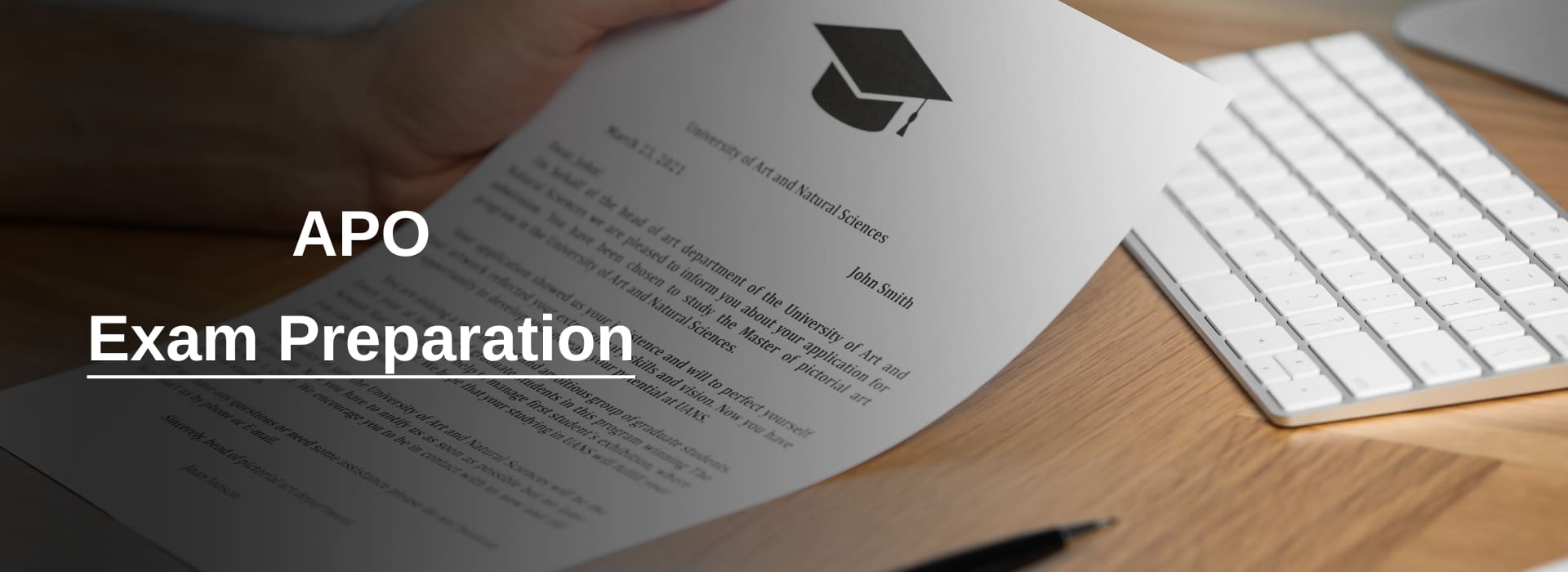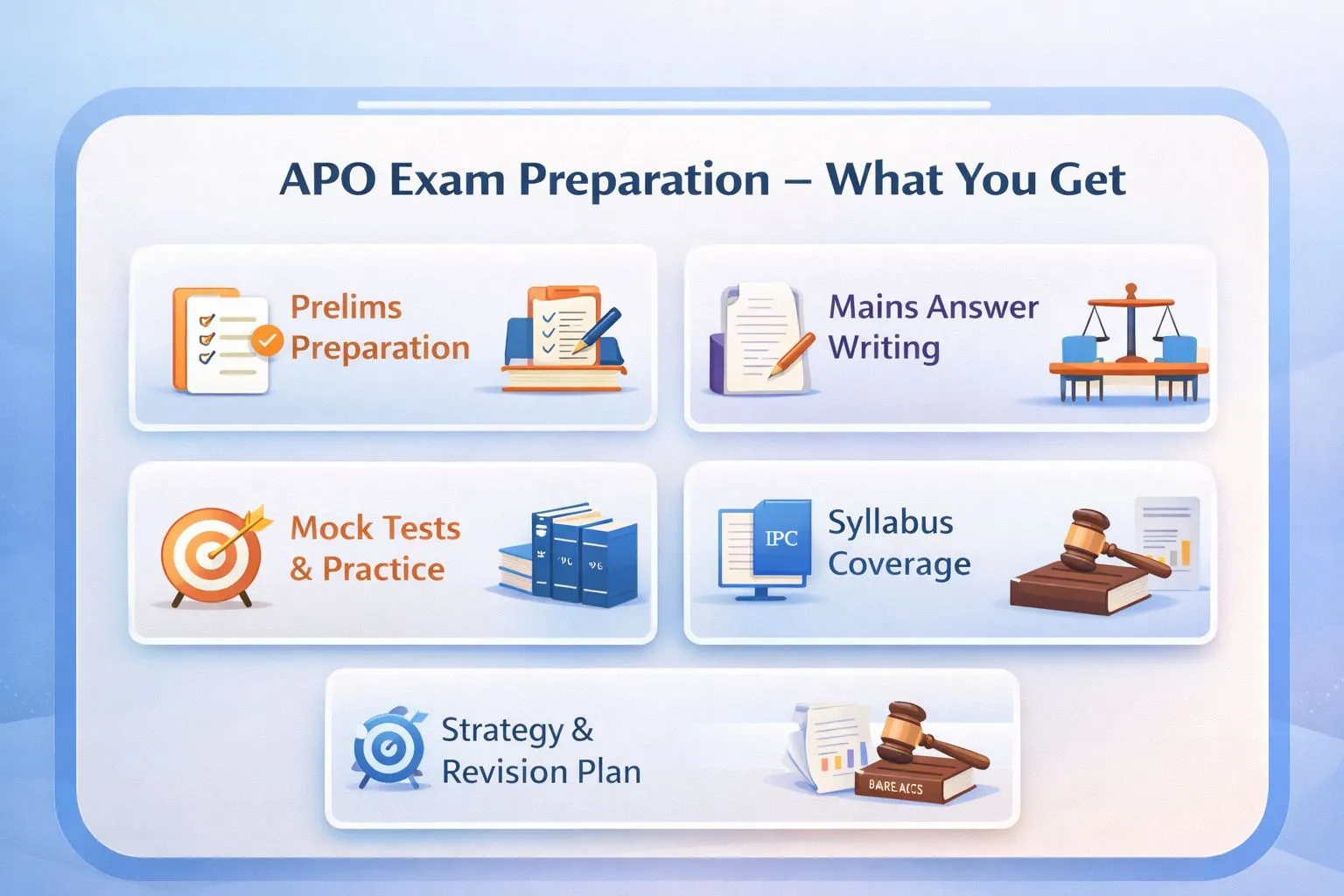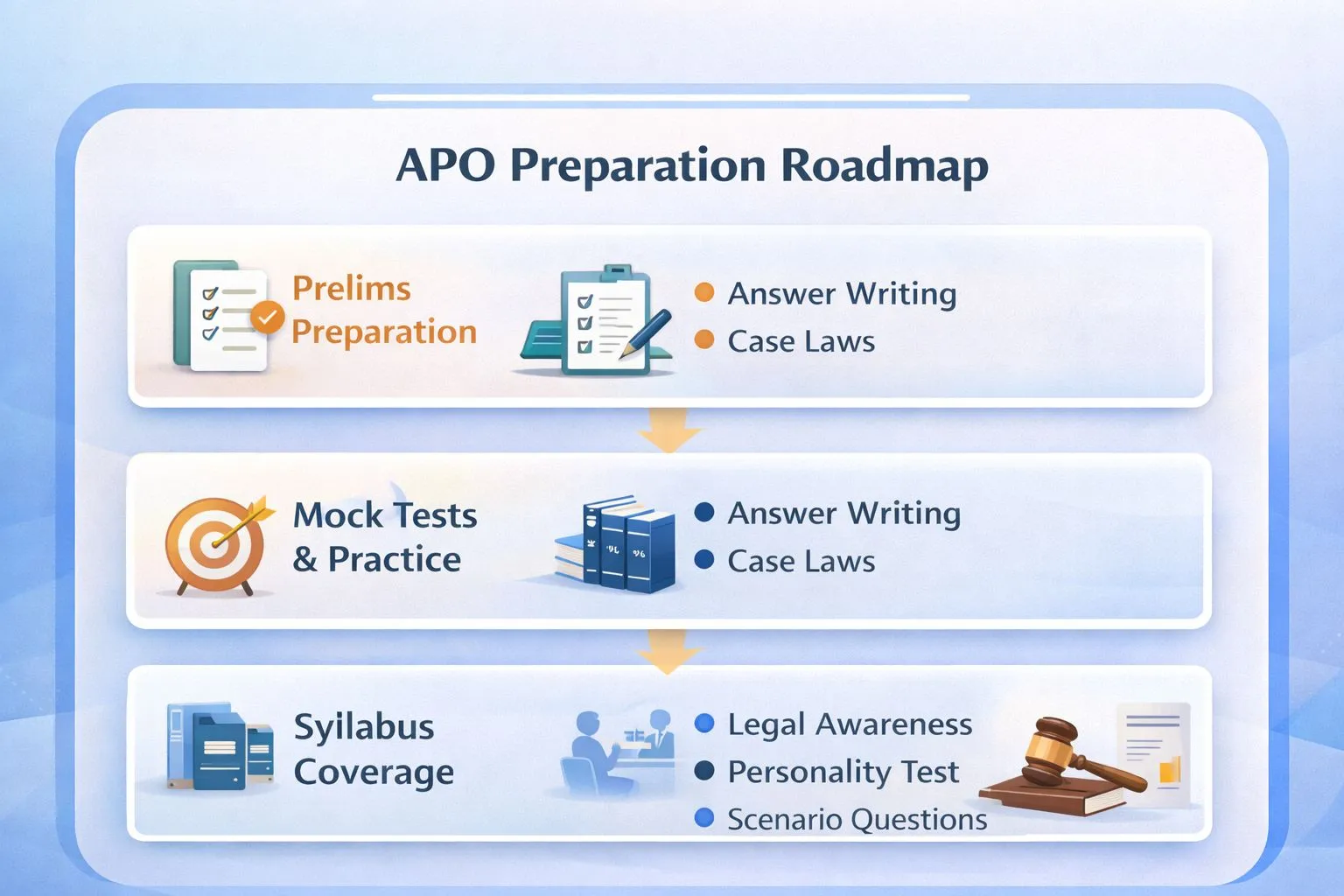
APO Exam Preparation in Patna
Looking for trusted and result-oriented APO exam preparation in Patna? Judex Tutorials offers a complete and structured preparation program for Assistant Public Prosecutor (APO) aspirants who aim to succeed in state-level prosecution services.
Our APO coaching program is designed to cover the entire examination process — Prelims, Mains, and Interview — with a syllabus-oriented approach, regular practice, mock testing, and personal mentorship.
At Judex Tutorials, we focus on building strong conceptual foundations, developing answer writing skills, and ensuring exam-level readiness so that students can confidently attempt both objective and descriptive papers.
What You Get with Our APO Preparation Program
- Complete coverage of APO syllabus as per latest pattern
- Separate focus on Prelims MCQs and Mains descriptive answers
- Regular mock tests with performance analysis
- Mains answer writing practice with guidance
- Interview preparation with legal current affairs
- Doubt-solving support and mentorship
Whether you are a beginner or a repeater, our structured preparation system helps you move step-by-step from basics to advanced exam-level practice.
Start your APO preparation in Patna with expert guidance today.
Enquire Now Book Demo Class APO Test Series
Prefer direct help? Call/WhatsApp:
+91-7488587396
Location: Dadijee Ln, Anandpuri, Patna (800001)
Quick Actions
Latest Blogs
Helpful reads for APO/Judiciary preparation:
- Visit All Blogs
- Civil Court Jurisdiction CPC Sec 9 Explained with Examples
- BNSS Investigation Procedure and FIR Filing
- IPC vs BNS 2023 Complete Section Comparison Guide
- Indian Constitution for Judiciary Exams Complete Guide
Fast Enquiry
Tap and submit your details. Our team will guide you with the right batch + plan.
Submit EnquiryClassroom + Learning Support (Image)

Why Choose Judex Tutorials for APO Exam Preparation in Patna?
Students usually search “APO coaching near me” or “best APO preparation in Patna” because they want clarity, consistency, and exam-level practice. Our system is built exactly for that.
- Syllabus-first teaching: prepare exactly as per exam demand.
- Prelims + Mains alignment: concepts are taught with objective + descriptive practice.
- Mock tests + analysis: identify weak areas early and improve faster.
- Interview support: legal current, scenario questions, and confidence-building practice.
- Patna-based local support: offline + online guidance with quick doubt resolution.
Understanding the APO Exam Structure
The APO exam is generally conducted in three stages—Prelims (objective screening), Mains (descriptive writing), and Interview (personality + application of law).
1) Preliminary Exam (Objective)
- Screening stage: speed + accuracy matters.
- Focus areas often include GK/Current Affairs + core law fundamentals + state-specific topics.
2) Mains Exam (Descriptive)
- Tests legal writing, drafting, and structured answers.
- Requires clarity of provisions + ability to apply law to facts.
3) Interview
- Assesses communication, confidence, and practical understanding.
- Scenario-based questions and legal awareness are common.
Test Series + Mock Practice (Image)

Prelims Strategy for APO Aspirants
Prelims is where many students lose marks due to lack of revision and weak MCQ practice. Your goal is: finish syllabus + revise multiple times + mock test discipline.
What to Cover (High-Impact Areas)
- IPC / Criminal Law: offences, exceptions, key definitions.
- CrPC: FIR, arrest, bail, trial stages.
- Evidence: relevance, admissibility, presumptions, burden of proof.
- Constitution: fundamental rights, judiciary/executive powers.
- State-specific laws: state GK, local acts/rules.
- Current Affairs: legal developments + important updates.
Mains + Interview: What Makes You Stand Out
Mains Answer Writing
A scoring answer is structured: Issue → Rule (section) → Explanation → Application → Conclusion. We focus on writing practice, presentation, and legal accuracy.
Interview Preparation
Interview is about clarity, confidence, and application of law. We focus on scenario-based questions, current legal updates and communication.
Start Your APO Exam Preparation in Patna Today
If you want a serious preparation environment with structured learning, testing discipline and mentorship, start with a demo or enquiry today.
Join Now How to Apply Contact